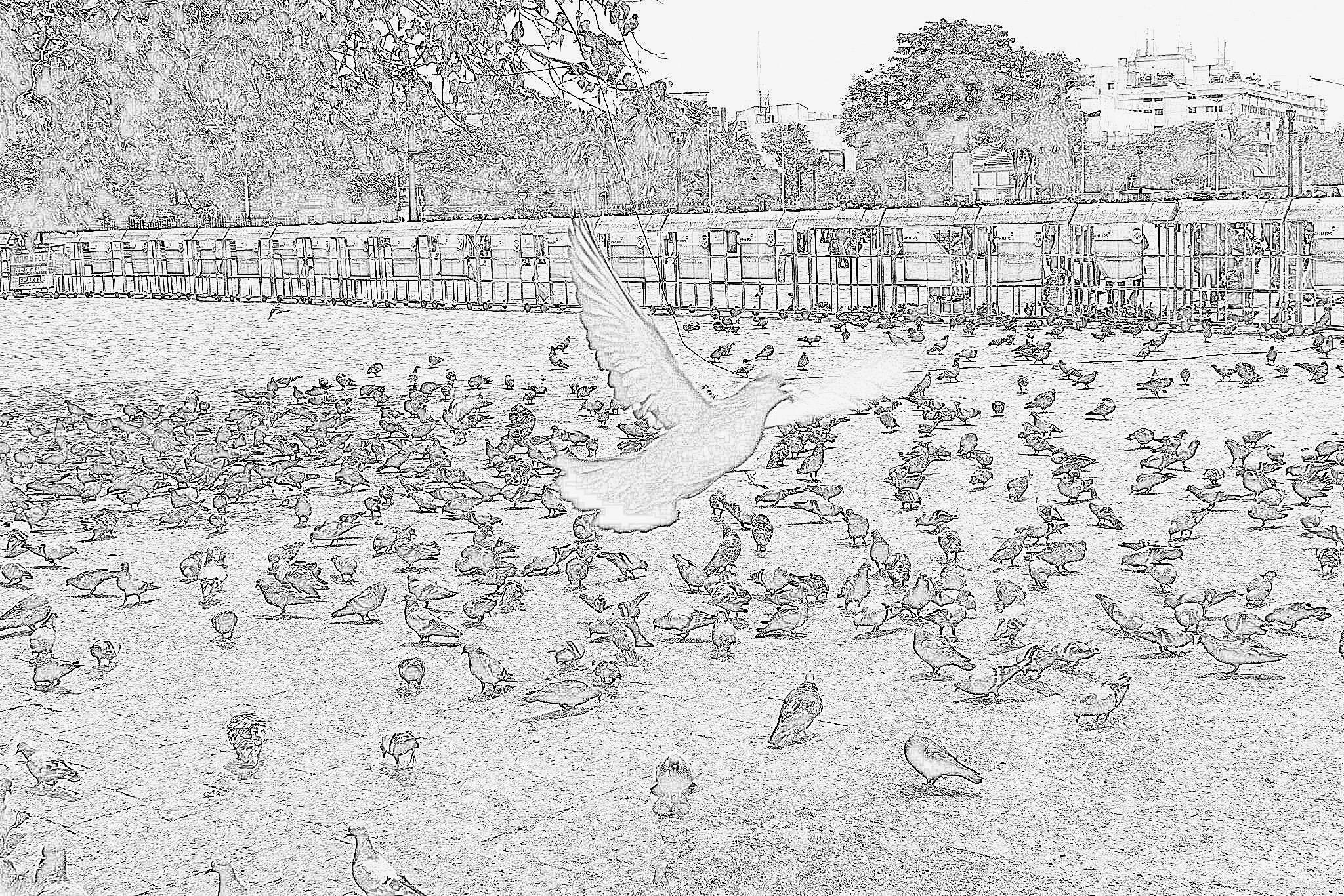Normative Winds

Questioning the collective dream is an act of exercising freedom. Examining the basis of how one should live, who with, and who for, is the kind of amateur iconoclasm that should be widely undertaken.
Perhaps it is – and perhaps everyone is content with coming to similar conclusions. Go to school, get a job, find a long-term partner, obtain a home, bring kids into the picture, fill your physical spaces and buoy your social ones with material things, travel occasionally, and aim for those unceasing milestones. Some of these things are necessary in a world constructed around increasing labor and capital to no end. Others are choices, many subsidized or imposed. By family, culture, governing bodies, and peers.
In this context, it can be exasperating to untie oneself from the common. To face persistent doubts about not being like-minded. To remotely question basic assumptions of what may underlie another’s comfort. As though one has come to naïve conclusions with little consideration rather than reflecting on what defines their own happiness.
Defensive, distractive, dismissive, disinformed retorts – the 4 walls of condescension put up around the ‘other’, in more circumstances than the above.
Culture is Nothing, Culture is Everything
How do you define yourself?
Are you deeply tied to your nation’s identity or history? Do you identify with those who share your ethnicity or heritage? What beliefs do you hold sacred? Which principles immutable? What behaviors do you find acceptable? What about the food you cannot live without? The hobbies and pastimes that you inform your personality? The spaces and environments that you require in order to be fulfilled? And what of your social needs – how many people do you need to relate with? What is your tolerance for connection?
How many of these individual aspects resonate because of social, political, or natural forces? Outside of your choices, what have you been driven to believe? What blind spots do you carry? Which flaws in your makeup are readily relinquished? Which ones core to your being?
What if you held none of the above in importance? What if your cultural habits tended to be ephemeral or waifish? Your reverence of identity diminished; the most passionate of its constituent traits never making it past your doorstep?
I find navigating normative winds to be a troublesome affair. This is not an appeal to hypersanity, rather an admission that cultural and traditional mainstays are not particularly compelling. Rituals and attachments that are of trivial importance when compared to the modes of critical inquiry that led us to or away form them in the first place. It is in some ways strange and some ways not at all that I, having been born in one of the most religious countries in the world and having grown up at times not being able to distinguish between myth and record, entertain so little space for cultural expression. No days celebrated; no hallowed habits. Sharing meaningful conversations with those held closely, over long walks or meals, often spontaneous in their construction, the only moments held precious and awaited. The nodes and phases of my philosophy seemingly misaligned with the plurality of those encountered.
I do also acknowledge the privilege of being able to reject certain prevailing cultural winds. My work involves supporting Indigenous systems of health and wellness in BC, Canada. Indigenous people who remain in the throes of a colonial legacy and its impacts, resulting repeatedly in the impossibility to separate a very personal attachment to their nations and history from the wellbeing of themselves, their communities, and their extended circles. The path for me to arrive at atheism, refuse to grieve publicly by skipping a funeral, or choose to forego cultural observances is a simple one. The same cannot be said for someone who has had their culture torn from their hands and shredded, to only be putting what pieces they can back together within legal and political spaces that wholly neglect their right to operate, equal and undisturbed. Attachment to community, cultural and traditional practices, beliefs in the divine, use of languages that not so long ago faced extinction – all inseparable in the quest for rekindled identity.
Are there Indigenous atheists? It is a rhetorical question. But at its heart is an unnerving truth about our imbalanced access to the radical. The foundations of community, culture, and belief are so easy to cast aside when they have always existed.
– – –
Credit: Vania Heymann
The ‘About’ page of this blog notes that I retreat from the “unconscionable modes of daily existence”. I do not believe “unconscionable” to be too strong a word. The depletion of our planet’s finite resources so integral to our daily lives; the active consumption that is encouraged at every turn; the disregard and cruelty towards each other and our fellow creatures; an inescapable need for an overabundance of choice; a tendency towards the irrational and fanatical; a lack of preservation, of the very real beauty left in this world, and of our kindness to one another.
There are plenty of things of value to hold high. Plenty to keep sacred and essential in the face of unrepentant excess and false connections.
We must continue our amateur iconoclasm and redirect the normative winds in more noble directions. Any other flight would be an abdication.